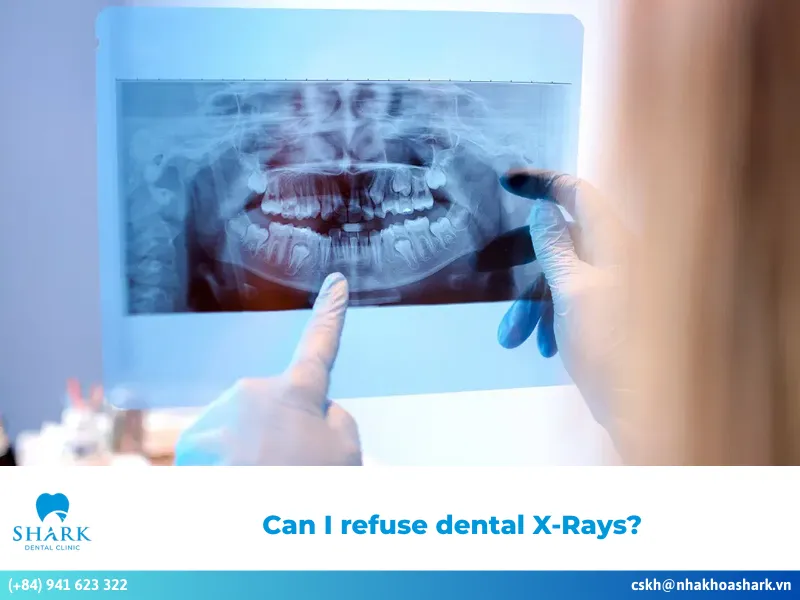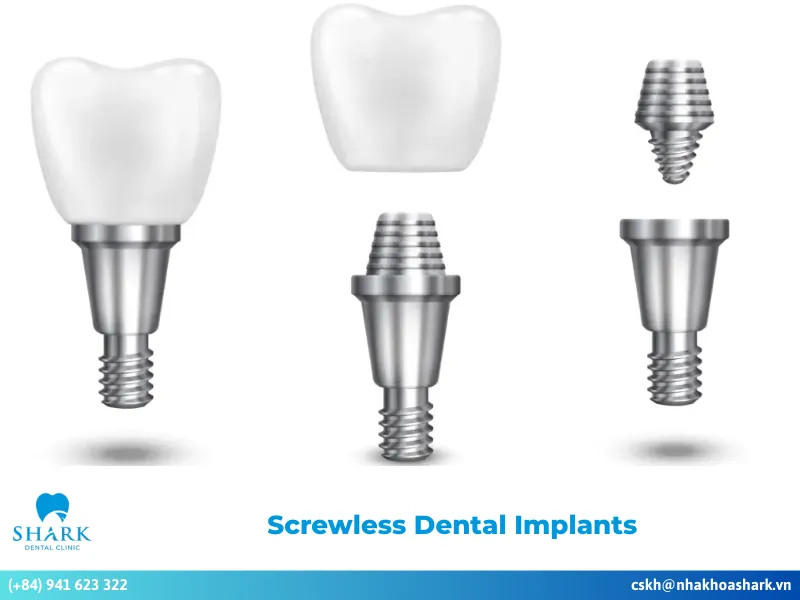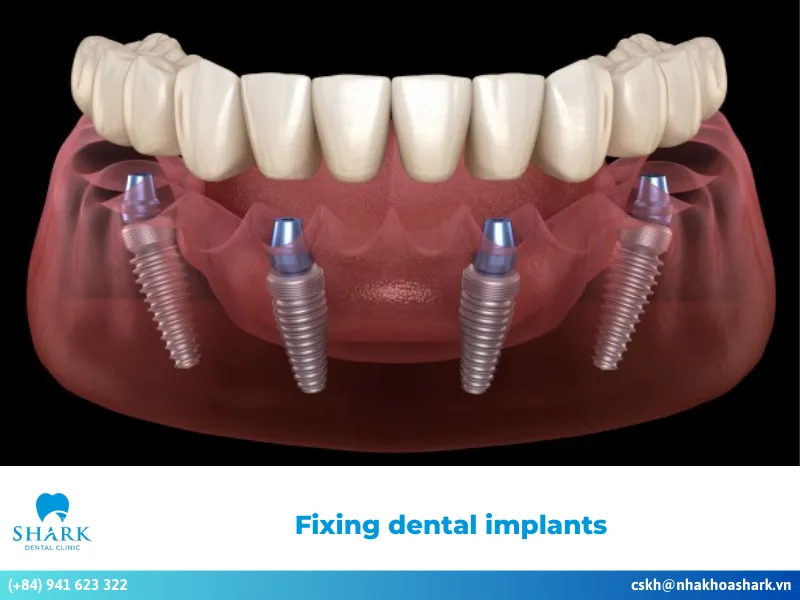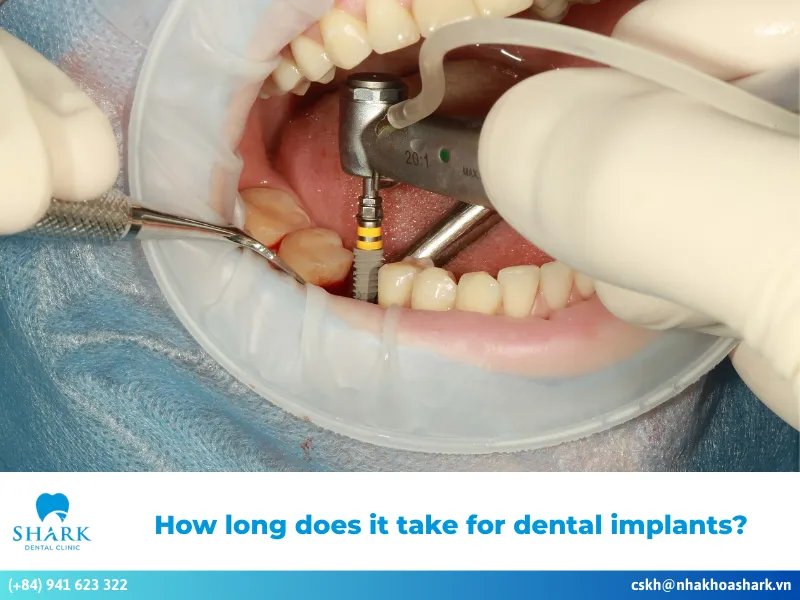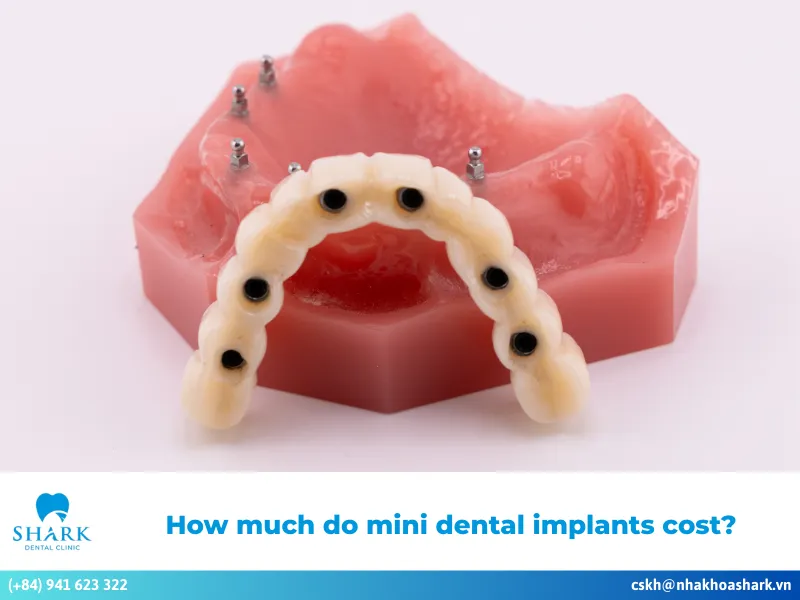The dental pulp is a vital part of the tooth, as it contains blood vessels and nerve fibers. When the pulp is damaged or its function declines, root canal treatment becomes necessary. However, many patients experience pain and discomfort afterward. In this article, we will explore how long does a root canal hurt and effective ways to ease the pain.
What causes pain after a root canal?
A root canal is a dental procedure that uses sterile instruments to remove pulp tissue that has died or become nonfunctional within the root canal. This treatment helps prevent the survival and growth of bacteria in the oral cavity, thereby minimizing the risk of infection.
However, after undergoing root canal treatment, many patients experience tooth pain, sensitivity, and discomfort that can interfere with eating and daily activities. The causes of this pain may include:
- Incomplete pulp removal: If the root canal procedure is not performed correctly at some dental clinics, and the pulp is not completely removed, this creates favorable conditions for bacteria to survive. This can lead to infections that result in severe tooth pain.
- Leaking root canal filling: After a root canal treatment, the canals are sealed with appropriate dental materials to prevent bacteria from entering. If the canals are not sealed properly, bacteria can multiply, leading to pain.
- Cracked or fractured tooth: Some patients may experience tooth pain due to cracks or fractures that occur during the root canal procedure. Cracked teeth can affect the nerves and blood vessels in the mouth, causing sensitivity and pain.
- Low-quality filling materials: Some smaller dental offices may use low-quality filling materials, which can lead to tooth pain. More dangerously, these materials may irritate the gum tissue and damage the soft tissues in the mouth.
- Incorrect technique during root canal: Although root canals are common dental procedures, not all clinics follow the correct protocols. Errors in technique, especially due to the limited skills of the dentist, may cause tooth damage and result in pain for the patient.
Accurately identifying the cause of tooth pain after a root canal is important for finding effective solutions quickly and ensuring safety. Always seek professional advice from a dentist for proper oral care.
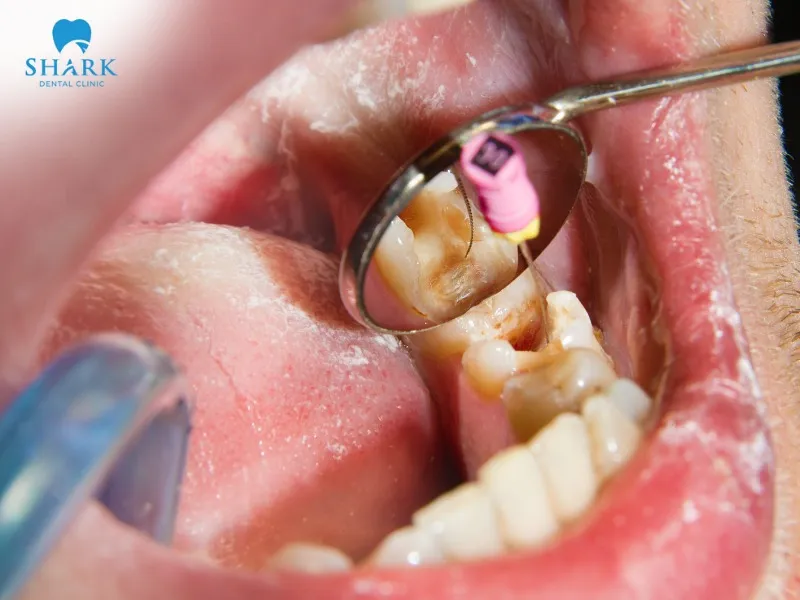
>>> See more: Dead tooth root canal before and after
How long does a root canal hurt?
After a root canal treatment, it is common for patients to experience mild tooth pain or sensitivity for about 3 to 7 days. The duration may vary depending on individual conditions.
- Within the first 24 hours: On the first day after treatment, you may experience tooth pain and swelling in the gum tissue around the treated tooth. This discomfort can make eating and daily communication difficult.
- 2 to 3 days after the root canal: The pain will gradually decrease or may completely disappear. At this point, most patients will only feel slight sensitivity, especially when the tooth comes into contact with very hot or cold foods.
- 7 days after the root canal: In most cases, pain should subside after 7 days or remain at a very mild level. However, if the pain does not improve, worsens, or is accompanied by bleeding, you should return to the clinic immediately for timely treatment.

In reality, there is no set duration for how long tooth pain lasts after a root canal procedure. The length of time can vary based on several factors, including:
- Condition of the tooth: If the pulp was severely damaged due to infection, an abscess, or pulpitis, recovery may take longer than usual.
- Location of the treated tooth: Some teeth have multiple root canals or calcified canals, which complicates the procedure. This can affect the surrounding gum tissue, resulting in prolonged pain after the root canal.
- Dentist’s technique and experience: While cleaning and removing the pulp is not overly complex, it requires expertise and skill. If the procedure is not done correctly, filling materials may leak, leading to ongoing pain and inflammation.
- Inflammatory response: Pain tolerance varies among individuals. Those with sensitive systems or weakened immune responses may experience more inflammation post-treatment, which can extend the duration of tooth pain.
- Post-treatment care: Eating habits and oral hygiene practices after the procedure significantly impact healing. Poor habits, such as consuming hard foods or neglecting to brush, can prolong recovery and pain.
If you experience persistent pain or sensitivity after 7 days post-root canal, it’s crucial to visit a reputable dental clinic. A dentist can examine your situation, identify the cause of the prolonged pain, and provide the necessary treatment to minimize complications.

How to manage pain after a root canal?
If the pain gradually decreases within 2–3 days after the procedure, no special interventions are needed. Maintaining a healthy diet, focusing on soft foods, practicing daily oral hygiene, and rinsing with warm water are usually sufficient.
However, if tooth pain continues excessively and disrupts daily life, consider these pain management methods:
- Rinse with saline solution: Salt water has antibacterial and anti-inflammatory properties that can help reduce bacterial growth in the mouth, alleviating tooth pain and swelling.
- Cold compress: Applying a cold compress can effectively reduce tooth pain and gum swelling. The cold constricts blood vessels and interrupts pain signals to the central nervous system, providing quick relief.
- Garlic for toothache relief: Garlic contains anti-inflammatory and antibacterial compounds that inhibit bacterial growth in the mouth. If you experience severe tooth pain, you can crush garlic and apply it directly to the affected tooth.
- Clove oil: Scientific studies have shown that clove oil contains eugenol, which has anesthetic, antiseptic, and pain-relieving properties. To relieve pain, dilute clove oil, soak a cotton ball in it, and apply it to the affected tooth.
- Peppermint oil: Like clove oil, peppermint oil can be helpful for patients experiencing post-root canal pain. It helps numb sensory nerve fibers, reducing both pain and sensitivity.

If pain persists despite these methods, dentists may prescribe pain medication. In some cases, patients may need to return to the clinic for an evaluation to check for any residual pulp that may require retreatment.
>>> See more: Dead tooth root canal before and after
Prevent future pain with smart dental habits
After completing a root canal treatment, dentists typically provide guidelines for proper oral care and healthy daily habits. Following these recommendations is crucial for supporting the healing process in your mouth, allowing for a faster and smoother recovery while minimizing post-treatment pain.
- Establish a healthy, balanced diet and avoid foods that are excessively chewy, hard, hot, or cold. Proper nutrition not only benefits your overall health but also reduces the risk of soft tissue damage, which can delay healing and prolong tooth pain.
- Additionally, make sure to brush your teeth regularly—at least 2 to 3 times per day. Use a toothbrush with soft bristles and gently clean all tooth surfaces as well as between your teeth. Avoid brushing too hard, as this can harm the surrounding soft tissues in your mouth.
- It is also important to maintain a daily rinsing habit using diluted salt water or specialized antiseptic solutions. Regular rinsing helps keep the mouth clean, lowers the risk of infection, and alleviates tooth pain.
- Schedule regular dental check-ups at least every 3 to 6 months. Routine examinations allow dentists to monitor your healing progress after a root canal and promptly address any abnormal dental issues that may arise.

The question, “How long does a root canal hurt?” has been thoroughly addressed in this article. With this information, we hope you now better understand the causes, management, and prevention of tooth pain following root canal treatment. Wishing you a strong, healthy, and beautiful smile!
>>> See more: How long does a root canal take to heal?





